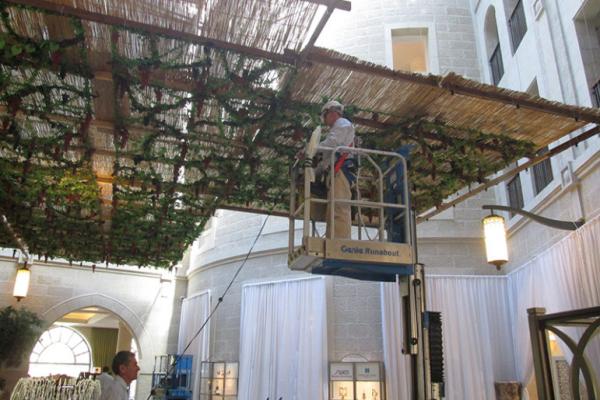Oct 17, 2016
When architects planned the Waldorf Astoria Hotel Jerusalem, they designed it with the Jewish holiday of Sukkot, or Feast of Tabernacles, in mind.
The hotel has an atrium with a retractable roof, as well as large, unobstructed patios to accommodate sukkahs, temporary structures Jews are commanded to dwell in during the holiday. In Israel the holiday, which began on Oct. 16, is observed for seven days, everywhere else for eight.
Read the Full Article

Already a subscriber? Login
